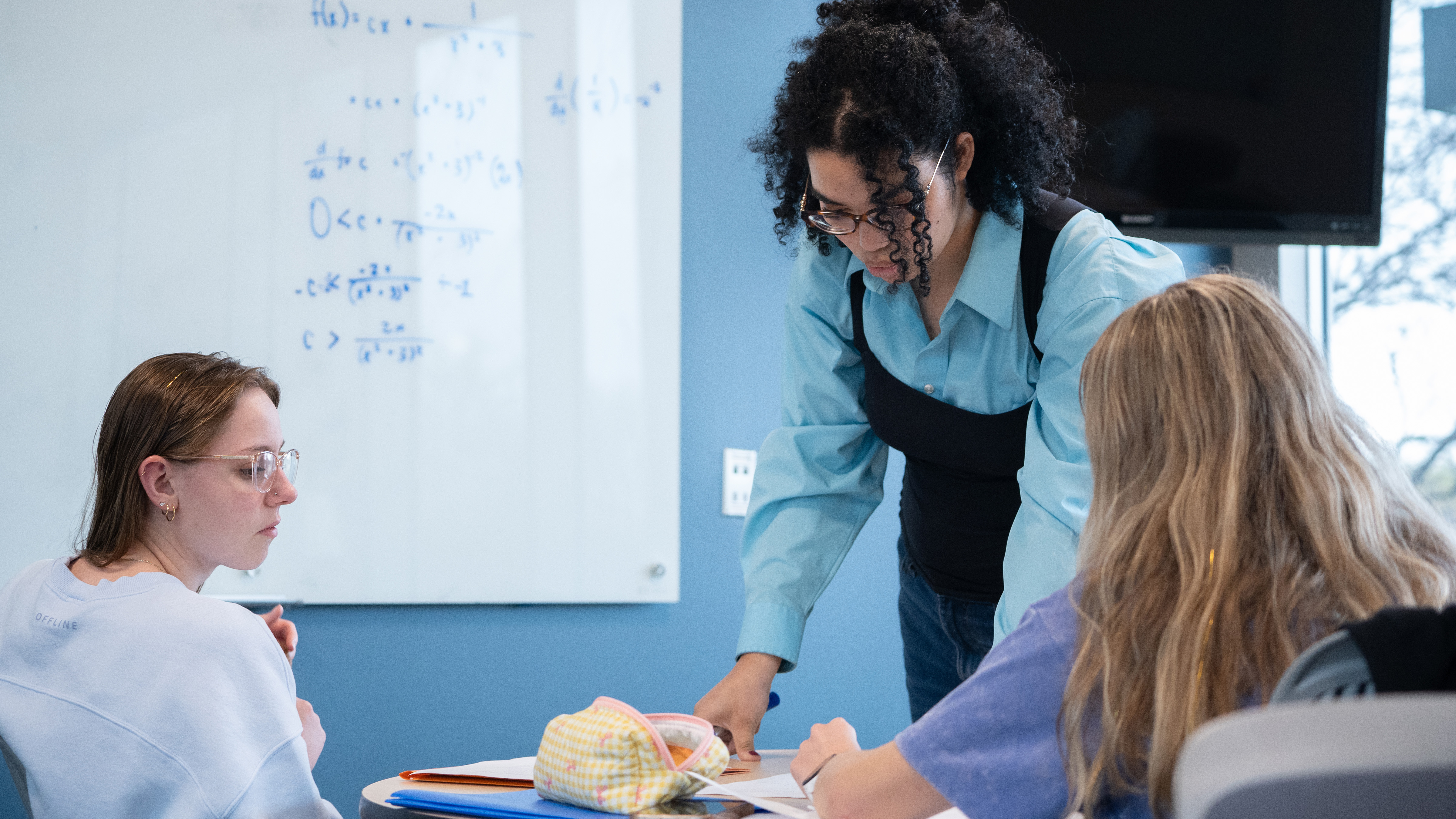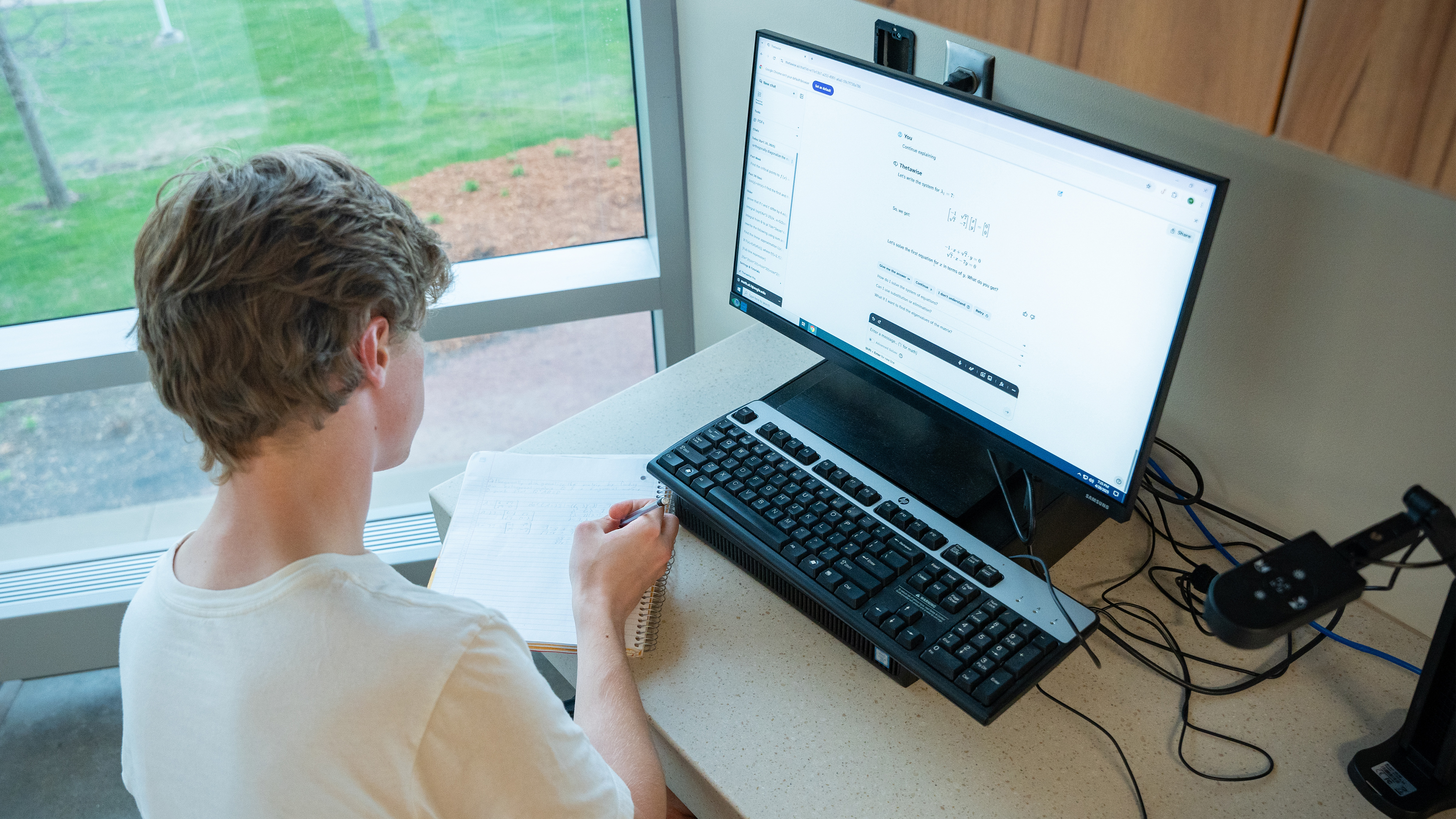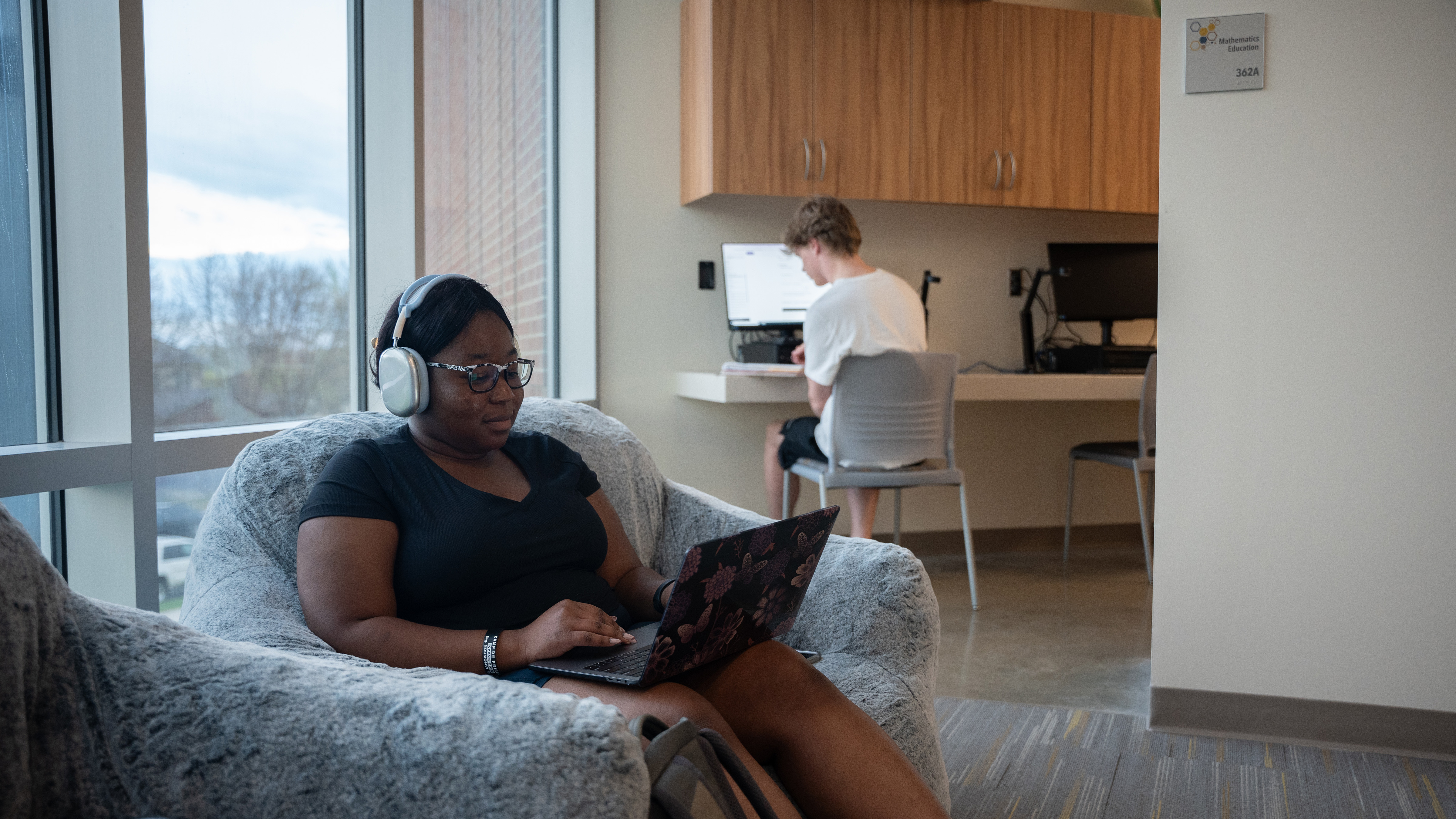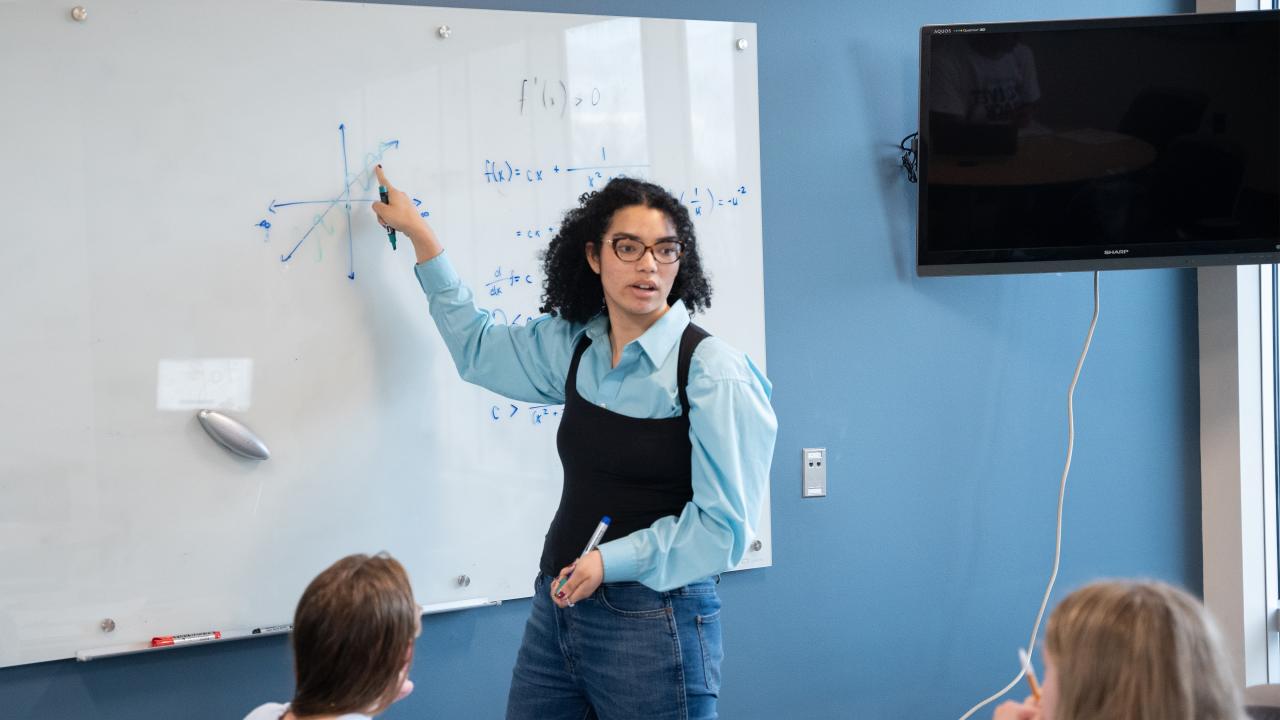The Math & Statistics Skills Center at Augustana University opened to students in Fall 2024 — a response to what faculty were witnessing among students in the aftermath of the COVID-19 pandemic. Since then, the center has become popular among students with a variety of different majors — taking advantage of its resources, community and vibe.
“Before the pandemic, we had this wonderful community of students who would just hang out in rooms and work together — they felt comfortable being vulnerable and working through problems,” explained Dr. Carl Olimb, Augustana professor of mathematics and director of the engineering program. “We noticed a shift in our students after COVID — that not a lot of them were coming in for drop-in tutoring, had a bit more anxiety, math anxiety, anxiety with coming in and working with others.”

To bring this type of community back within the Froiland Science Complex (FSC), the Augustana Mathematics Department applied for an Oliver Innovation Grant. The department received the funding two years ago — standing up the Math & Skills Center in FSC’s Room 362, which included the purchase of equipment and ability to pay tutors, as well as a director.
“Throughout the year, it (the position) involves hiring, training and overseeing tutors. I regularly collect data on who is attending the Math & Statistics Skills Center and use this to help my colleagues and me make informed decisions about how to improve outcomes for our students,” said Dr. George Nasr, director of the Math & Statistics Skills Center and assistant professor of Mathematics.
Modeled after the Nancy Dickinson Writing Center at Augustana, Nasr provides the tutors with multiple levels of training.
“The first is purely content — reminding tutors of content they haven’t seen in some time in an effort to help them feel as prepared as possible for when students ask questions,” explained Nasr. “The other type, which I find much more substantial, is what I’ve called ‘pedagogy training’ — essentially, the “dos and don’ts” of tutoring and teaching. Basic examples of this include not just giving students the answers and avoiding what the mathematics community calls ‘mathematical microaggressions.’ Calling concepts ‘easy’ or ‘obvious,’ for instance, may leave a student feeling invalidated. For me, it’s essential that our tutors view mathematics as a skill anyone can develop given enough time and support.”
Nasr said having an understanding of content is not enough to be a tutor in the center. To name a few, he listed “being empathetic, thoughtful, patient and understanding” as essential skills in communicating mathematics.
“My hope is to continue to share what math education research tells us with our student tutors to ensure the best outcomes for our students,” said Nasr.
“It’s a lot of the metacognitive things: How are you thinking? How are you talking? How are you explaining? Are you explaining with empathy? Are you showing that you’re listening to someone’s question and making sure they feel heard?” explained Schaler Starks ‘25, a former Math & Statistics Center tutor who double majored in bioinformatics and mathematics at Augustana.

And, word travelled quickly. Starks said a lot of students who visited the center at the beginning of the academic year or semester were timid. She said students often started by asking if they were in the right place to then, asking course-related questions, followed by hanging around to study — even if they didn’t have questions. Many students even brought their classmates and friends who were struggling in a certain class.
“I think having a room where you’re all doing the same thing, especially early on — the underclassmen who are kind of struggling through the same things — helps you meet people, classmates who you wouldn’t maybe talk to otherwise,” Starks said. “Watching people come out of their shell has been really fun.”
Last year, the center consisted of eight tutors who had the ability to guide their peers in subjects ranging from precalculus and calculus to quantitative reasoning and statistics. And, their impact has the Mathematics Department taking notice.
“Aside from the community, one of the reasons we did this is the DFW rates (the percentage of students who receive a D or F grade, or withdraw from a course) on campus. Two courses with the highest rates are Pre-Calc and Calc, and we’ve now started to see those numbers decline a bit,” stated Olimb. “And, we want to continue to look at that data.”

The center not only provides drop in tutoring, but computers that hook up to TVs — allowing for problems to be displayed to larger groups — and computers that are equipped with AI math tutoring software.
“Students can be working underneath the dock cam and the AI is reading their works in real time — giving them comments on it,” said Olimb.
It’s okay, though, if you enjoy just good ‘ol pencil and paper like Starks.
“I know a lot of students really like the tiny whiteboards — they’re really nice for them to feel like they can make a mistake and rub with their thumb and it goes away. I think that helps people feel less afraid of mistakes,” said Starks. “My other favorite technology in the room are the bean bags — it’s just being able to sit around knowing that when you walk into a space, you’re not going to be judged for not knowing something that’s easy for someone else.”
In Fall 2025, the Augustana Math & Statistic Skills Center expects to be open for students Mondays through Thursdays, from 7-8:45 p.m.
To learn more about the Augustana Mathematics Department, visit augie.edu/MathDepartment.
